by Paul Cudenec
The rejection by the vast majority of the French people of president Emmanuel Macron’s bankster regime could hardly have been clearer on Monday May 1 2023.
Massive crowds filled the streets across the country, with the demo in Marseille, for instance, described as “perhaps the biggest mobilisation in the history of the city”.
Overall, it is estimated that 2.3 million people showed their opposition to Macron’s pension “reform” and to his neoliberal agenda in general.
With opinion polls putting disapproval of the new law at 80 or even 90 per cent of the population, in an actual democracy it would immediately be withdrawn, or subjected to a referendum.
But France, like so many other countries I might mention, is not an actual democracy but a plutocracy which has, until very recently, managed to pass itself off as a democracy.
The only interests that matter are those of Big Money, of Capital. The opinions and well-being of the people are of no interest to Macron and his former employers, the Rothschilds.
This utter contempt for the hoi polloi was very much in evidence on May Day, with scenes of shocking, brutal police violence against protesters and journalists.
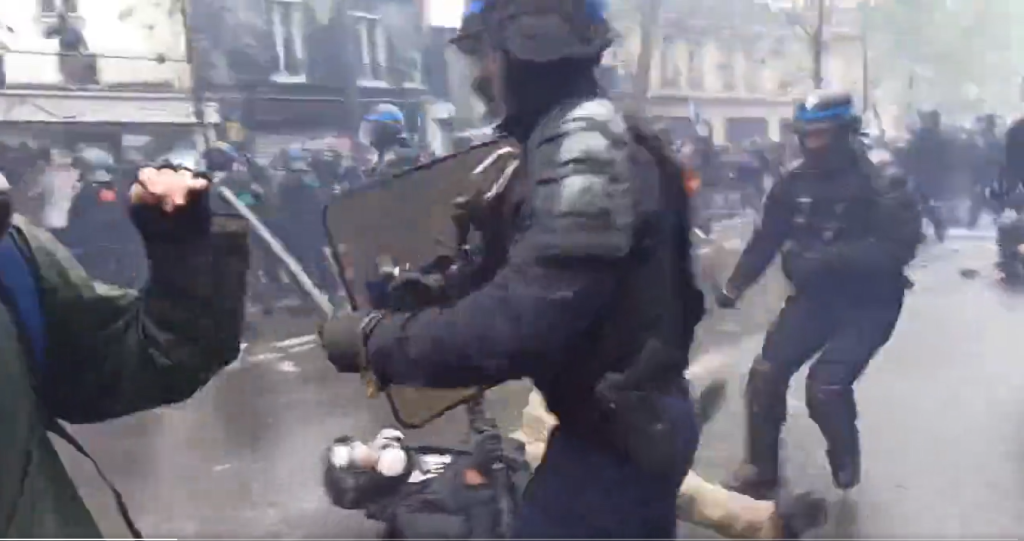
The sight of a man on the ground being kicked in the face by a cop was just another snapshot of the ongoing armed robbery of humanity by a psychopathic global criminal gang.

For the ruling clique and its corporate media, of course, the shocking element was that people are increasingly refusing to be simply trampled underfoot, or scared off the streets, by an army of “lawful” enforcers of the Rule of Greed.
Glorification of historical revolution and resistance is a constant feaure of the rhetoric of La République Française, and yet when confronted with the real-life current-day thing, the attitude of its leaders suddenly becomes that of powdered ancien régime autocrats or of wartime Nazi collaborator Philippe Pétain.
Interior minister Gérald Darmanin not only called for draconian sentences against anyone who resisted the “forces of order” on May 1 but also restated his desire for a new law that would mean anyone deemed by the state to be “a threat of particular severity to public order” could be banned in advance from all protesting.
Meanwhile, Macron’s gang are intent on replacing a commitment to Liberté, Egalité et Fraternité with the new unholy trinity of Work, Order and Progress.
Try that out in German and see how it feels: “Arbeit, Ordnung, Fortschritt“.
Hmmm….
When prime minister Élisabeth Borne condemned “scenes of unacceptable violence” on May Day, she was naturally not referring to the actions of the heavily-armed police.
There was no official concern for the protester who had his hand torn off by a police grenade in Nantes or the hundreds of others who were injured.

Instead, the tooled-up robocops who spent the day viciously attacking protesters on behalf of the money-power were depicted as innocent victims, thanks largely to one Parisian molotov cocktail that found its intended target.
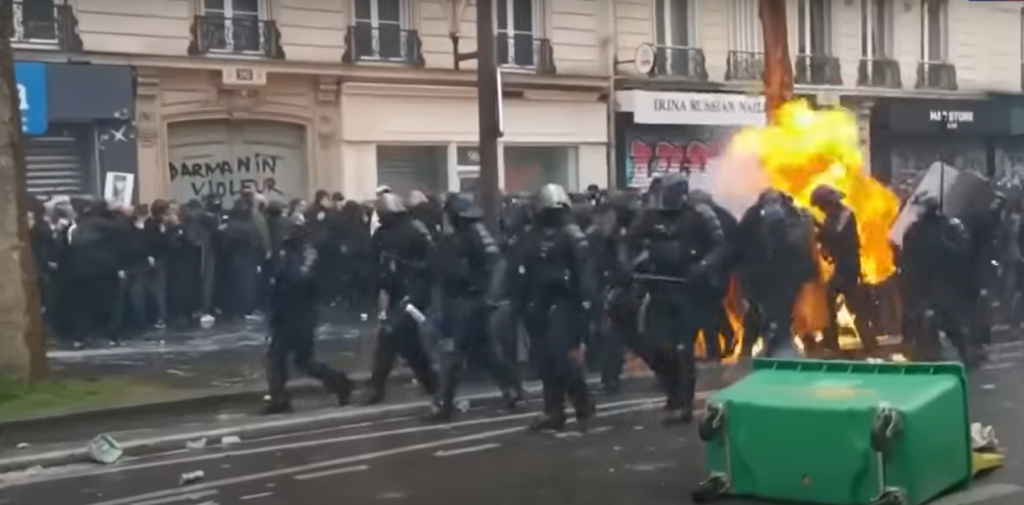
Some of the police “injuries” were self-inflicted, such as when a hapless cop threw a grenade at his own colleagues!
And what a shame that so many banks and insurance companies had their premises trashed in Lyon, Paris and elsewhere.
Through the clouds of tear gas and propaganda, a fundamental fact is becoming very obvious in France today.
This is that the monopoly on violence claimed by the system has no basis in either democracy or morality.
It sends its hired thugs out to attack you and smears you as “violent” if you dare to resist them.
This is not new, of course. The great Leo Tolstoy declared more than a century ago: “Laws are rules, made by people who govern by means of organized violence, for non-compliance with which the non-complier is subjected to blows, to loss of liberty, or even to being murdered”.
But all the time that people believe that they live in a democracy, they find it difficult to see this.
When the illusion of democracy disappears, as I think it is doing in France at the moment, the picture becomes very different.
On Monday I attended the enormous demo in Montpellier, along with 18,000 others.
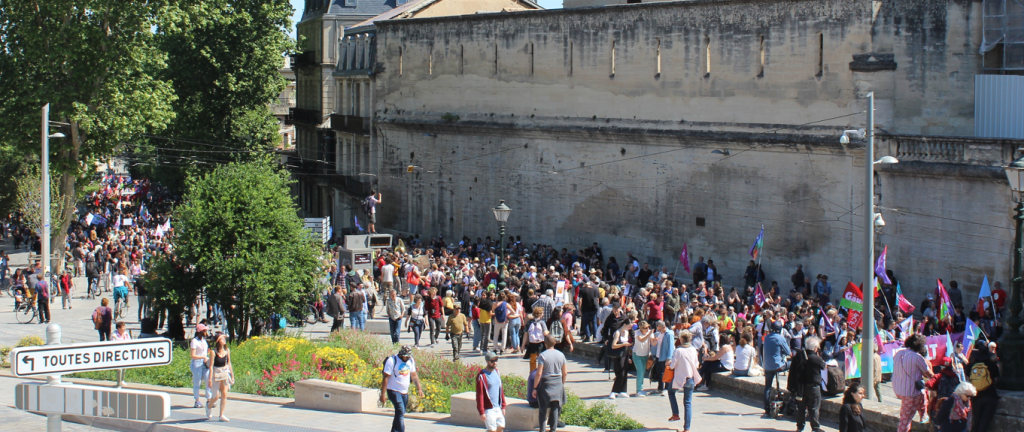
The protest was so big that I managed to remain blissfully unaware of the clashes that apparently broke out further ahead when police moved in to confiscate a banner and all I witnessed was a festive parade in the Mediterranean sunshine.
I spoke to some of the protesters to find out why they were there.
Two of them were teachers with concerns about the decline of the education system under Macron.
“I’m angry about what is happening in our schools”, said Corinne, describing a degraded system where classes were too big and it was impossible to do the job properly.
Christine added that with the latest changes, pupils would be taught to meet the requirements of private businesses.
“It’s not so much educating them as training workers, employees”.
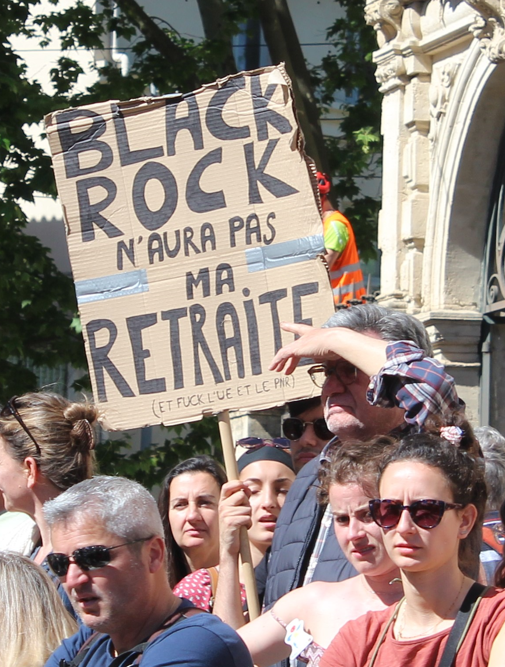
Nicolas said he was fed up with politicians in general and Macron in particular.
“He is a back-to-front Robin Hood, robbing the poor to give to the rich”.
His mother Sonia added: “The policies are unfair. It’s always the same people who lose out”.
Charlie told me he attends the May Day protest every year, but on this occasion he wanted to express his unhappiness at the way Macron was pushing through his policies without the consent of the public, having won the election run-off only thanks to widespread opposition to Marine Le Pen.
“He couldn’t care less about the people,” he said. “Today, we can show him that we exist”.
Carole explained that she wanted to participate in the current movement of solidarity across the country.
“We have shown that France does not agree with this reform. The people has spoken”.
Agnès revealed that before the pension controversy, she had only ever been on one demonstration in her whole life.
But she was there to express her opposition to the law, as was her husband, a company boss.
She said that under Macron, certain people had too many privileges and he acted as if he were king.
“He looks down on the French people. It’s intolerable. It’s not worthy of French democracy.
“We are French and when we are unhappy we take to the streets. It’s in our blood!”


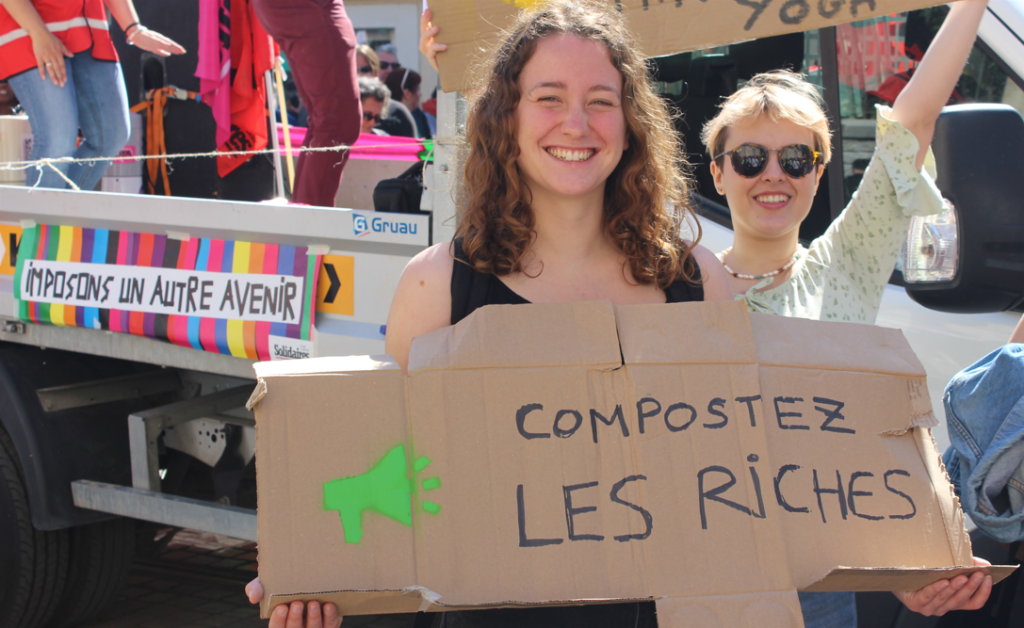
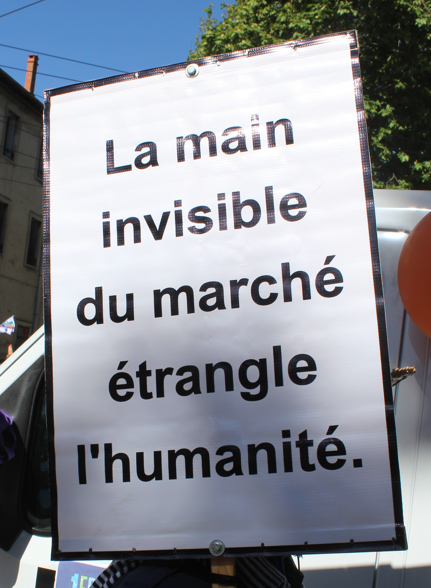
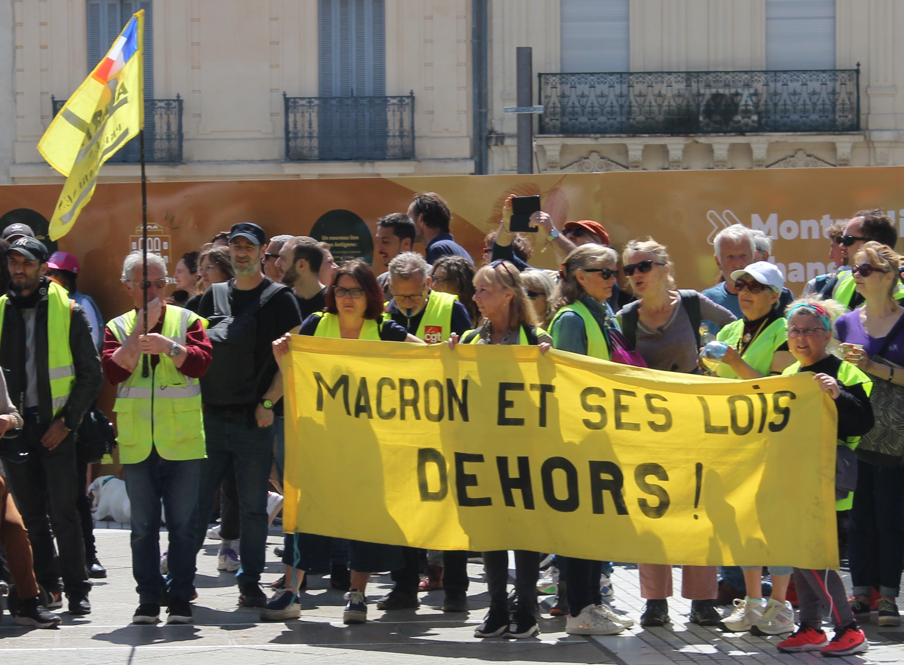


See also: